AGENCY
The capacity for people to make their own choices.
Small loans help Aplonia get through hard times
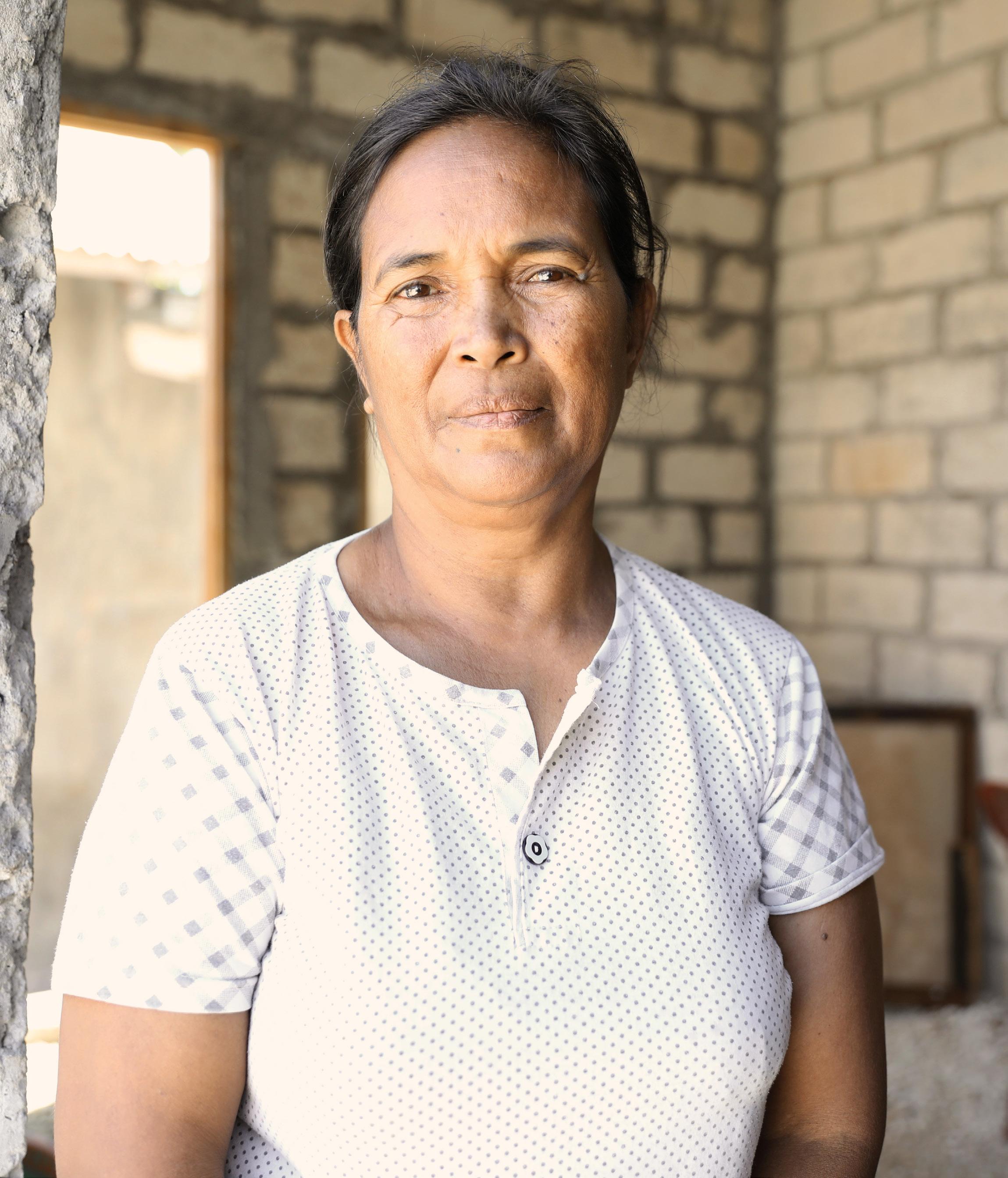
Neighbours journeying out of poverty
Women entrepreneurs inspire Ginger

Small loans help Aplonia get through hard times

Neighbours journeying out of poverty
Women entrepreneurs inspire Ginger
On the cover and above: Aplonia runs a fruit and vegetable stall at the local markets, with the help of a small loan from Opportunity’s microfinance partner in Indonesia. With her husband unable to work after suffering a stroke, Aplonia is the sole breadwinner in the family. Read her story on pages 8 and 9.

Most of the field visits I have taken so far in India have been spent in rural areas where almost 90 per cent of people who live below the poverty line reside. However, being confronted with urban poverty on this recent trip stopped me in my tracks.
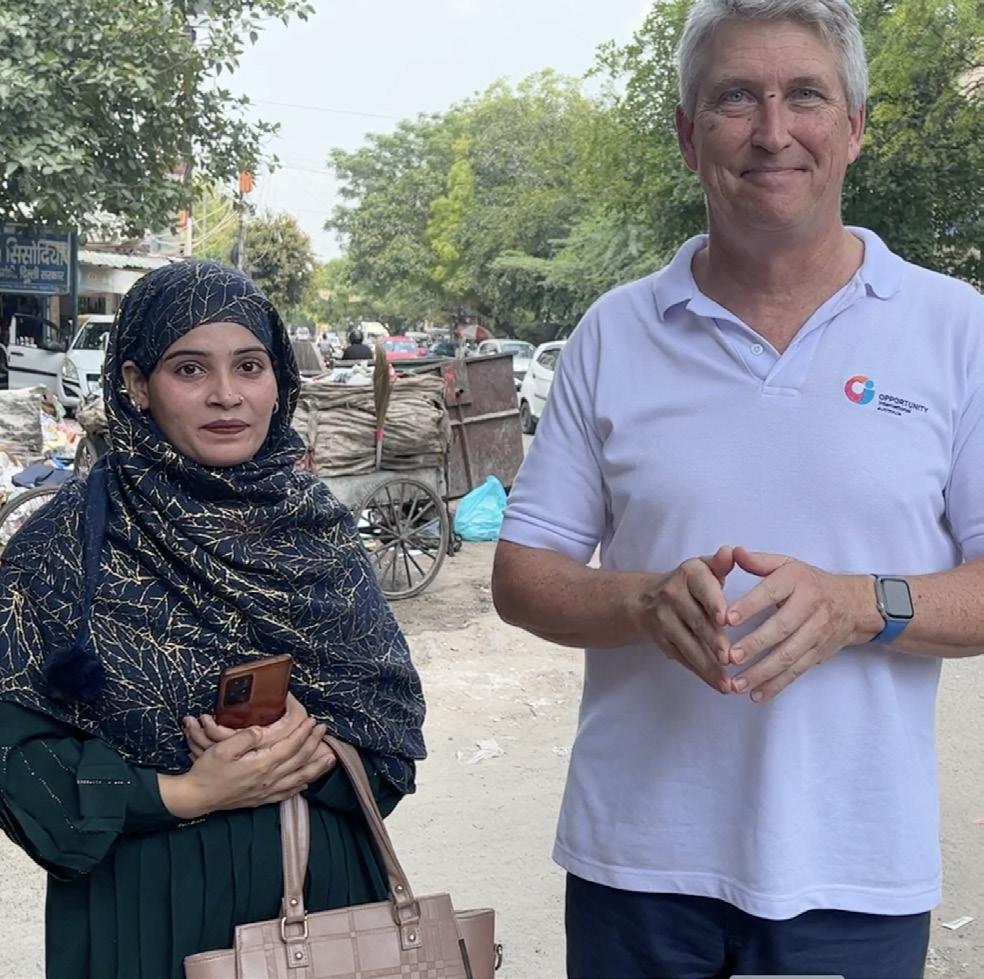
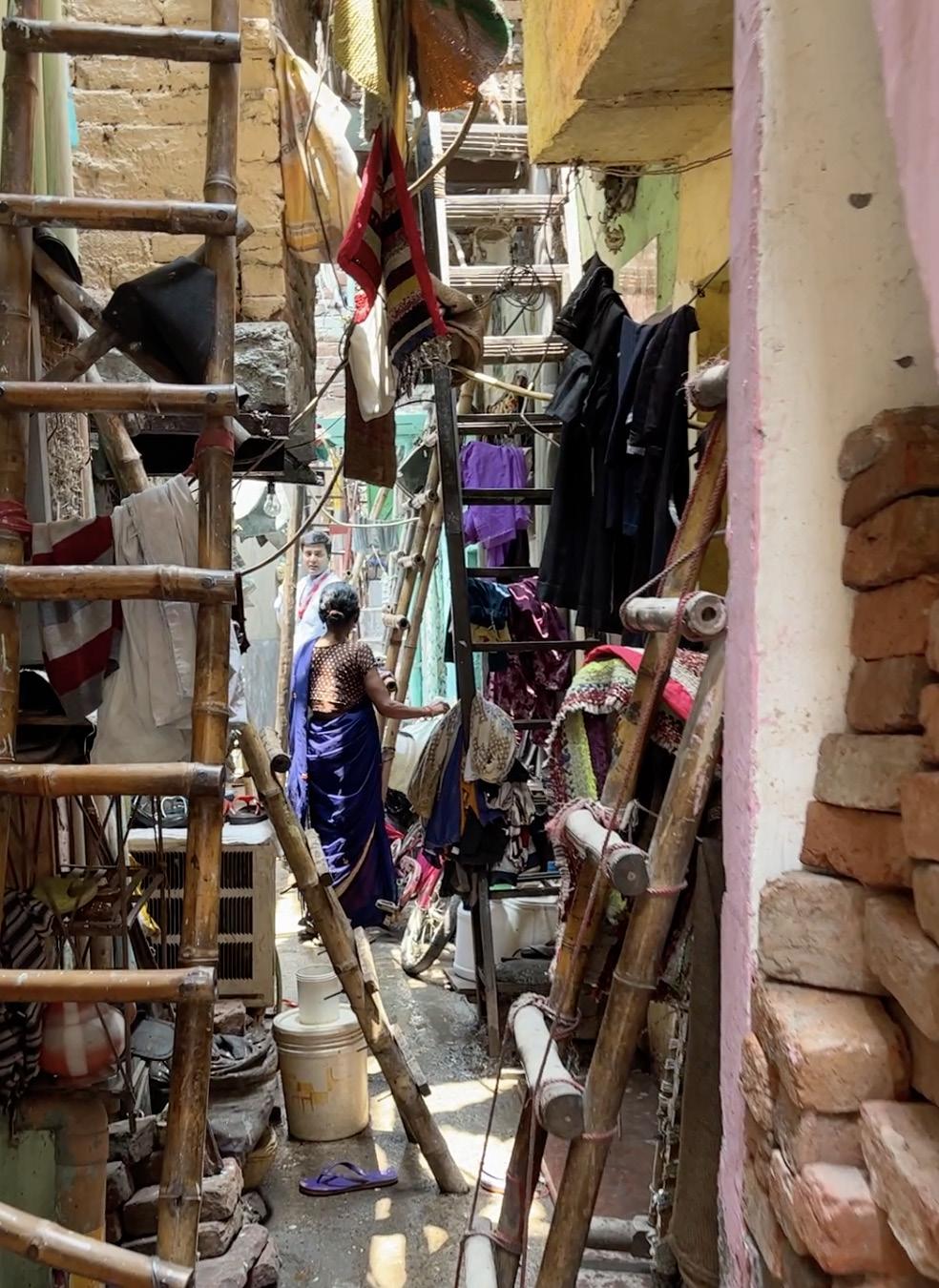
It’s easy to assume that everyone’s okay in a big city. There’s infrastructure, there’s public transport, a seat of government, but what I saw in Delhi was often hidden. It was urban poverty, which was no less confronting and challenging than rural poverty.
You can walk down the street with cars, buses, motorbikes, paved roads and shops, then you hang a left down a narrow alleyway, which is known locally as a “colony”, where you sometimes see as many as a thousand people living in abject poverty. There’s no running water, no heating, no natural light. There can be six to eight people living in one room.
The people living here are trying to eke out an existence and thanks to microfinance, they can make a living. Some of the women taking out small loans are using their funds for businesses like beauty salons, tailoring, and selling packaged lunches to local businesses. A few of the men have taken loans to purchase a rickshaw to start a transport business.
What struck me most is that there is hope for all these people living in urban poverty. A lot of Delhi is prosperous, people have moved from rural areas to the city looking for work and better job opportunities. Their children are attending school and they have hope for a brighter future.
Thank you for journeying with those we serve. Your support helps to create a better life for them and their families.
With blessings and sincere thanks,
Scott Walters Chief Executive Officer Opportunity International AustraliaOn a recent trip to India, it was my first time meeting some of the clients we serve in Delhi and seeing urban poverty first-hand.Top: An alleyway in Delhi, where urban poverty is ever-present. Below: Saira, a new loan recipient meeting Scott Walters in Delhi.
6.5 million families in India and Indonesia currently benefiting from small loans
1 million families supported by Health Leaders and Health Entrepreneurs in Asia
With a buffalo, women in rural India have a viable future asset that they can use to feed their families, earn a sustainable income, and contribute to a thriving community. Chetna is one of the women who has started a buffalo business in India, with the help of a small loan. Taking her existing know-how and skills in milking and caring for buffalos, she was able to combine her savings with a loan to purchase the animal – giving her the foundation to build a better future.
Buffalo farming is an important component of India’s rural economy. The animal’s milk fetches a higher price than cow’s, due to its high proportion of fat content. The milk is sought after for making products like paneer (cottage cheese), used to cook delicious Indian dishes like palak paneer, as well as ghee (clarified butter) and cheese.
After using the milk to provide important nutrition for her family, Chetna sells her buffalo milk to established co-operatives via local, chilled collection points. This revenue is predictable and convenient, providing a stable income that has supported her children’s education and covers basic household costs.
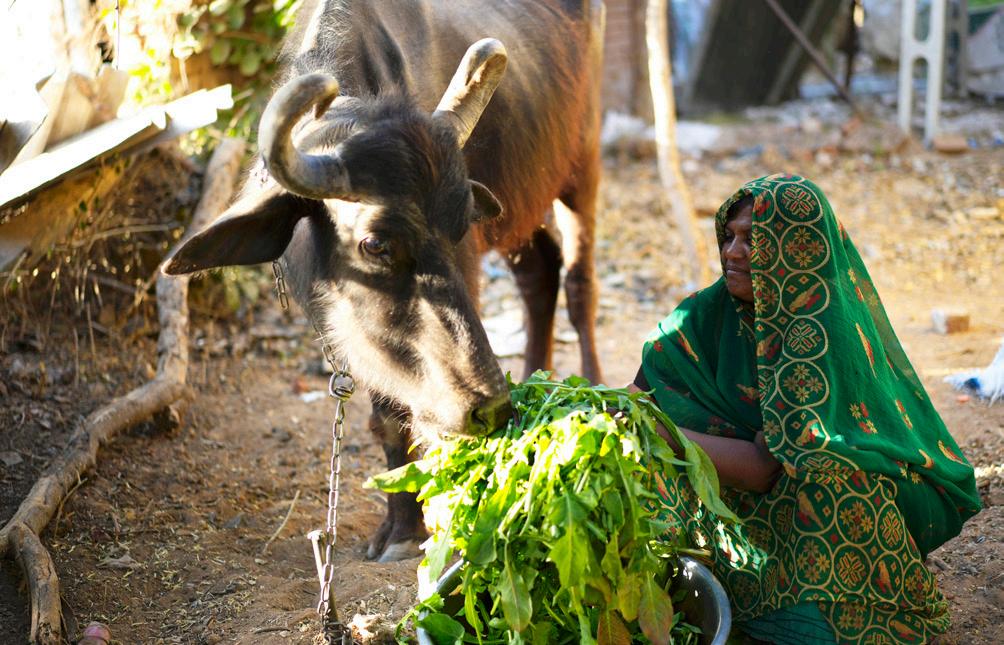
Buffalos offer a low risk, regular baseline income that’s not time-intensive to produce. Buffalo loans are a proven business solution that change lives.
Opportunity’s health program partner, KOMIDA, is the first microfinance organisation in Indonesia to roll out a community health program at scale. The Health Leaders program empowers female microfinance clients to deliver basic health education in their communities, with a focus on prevention and promotion. To date, KOMIDA has delivered community health education through eight of its branches.
We look forward to continuing to expand this program to all KOMIDA’s 300 branches across the country that serve more than 700,000 people, many of them women and families experiencing poverty. Opportunity also plans to scale our health program across Indonesia by working with additional partners.
In Bangladesh, Health Leaders are delivering community health education in two districts. Our local partner BURO has more than 1,300 branches serving over 2 million microfinance clients, and is dedicated to scaling this program to benefit the communities it serves.
A recent qualitative focus-group study in Bangladesh found Health Leaders highly valuable to the community in terms of improving health knowledge, attitudes and practices. One participant said, “Yes, I want more and more education on health topics – please teach me, there’s no limit to learning!”
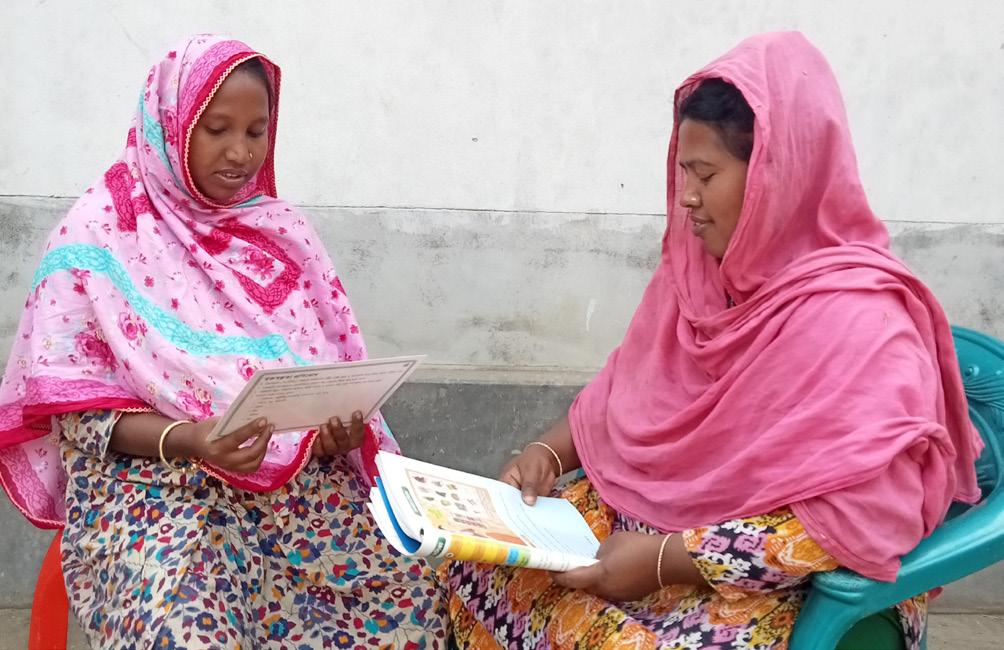
Opportunity has worked with our local women’s safety partner in India to develop a three-phase Safe Village Program – with more in-depth interventions in communities identified as being higher risk of trafficking.
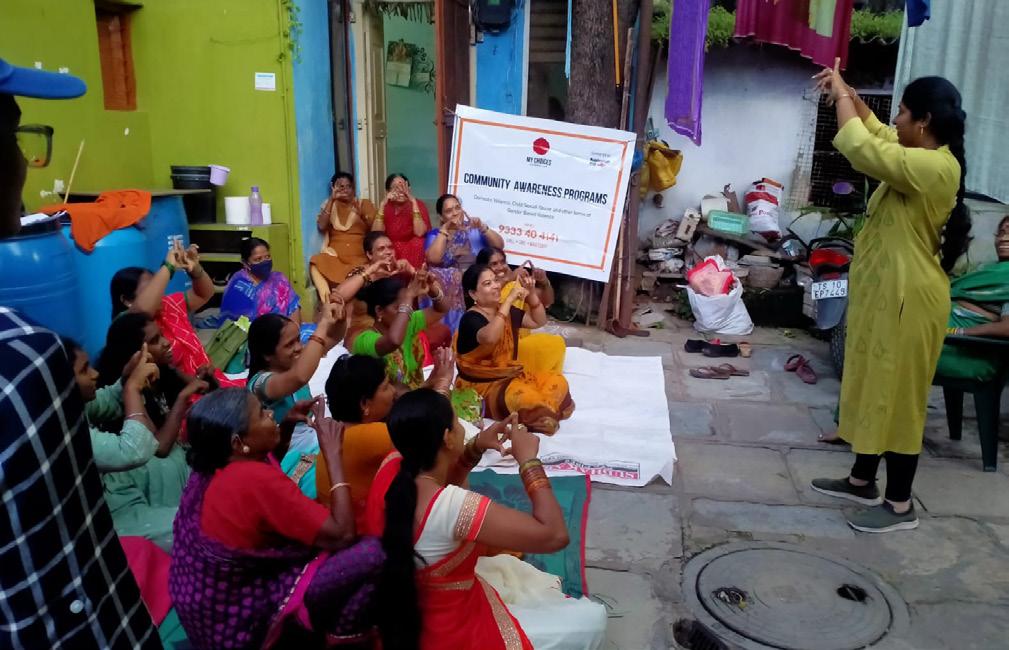
Phase One: Safe Village Program Community Education
The Safe Village Program empowers communities with education and tools to protect themselves. Education sessions held in the community promote an understanding of human rights, warning signs, reporting systems and laws, and provide resources for prevention.
Phase Two: Safe Village Step-Up
Safe Village Step-Up reinforces the outcomes of the Safe Village Program with additional training sessions over three to six months to reinforce awareness of and vigilance around prevention, warning signs, human rights, and reporting resources.
In some communities supported through Step-Up, with ongoing reports of trafficking, child marriages or suspected trafficking, a more comprehensive on-ground intervention is required. Opportunity’s local partner aims to triage communities with active trafficking risks with a new, all out ‘blitz’ initiative – essentially zooming in with comprehensive and tailored interventions to decrease the risk of trafficking in the most at-risk communities.
43,500 families educating children with school fee loans in India, Indonesia & Pakistan
EduFinance recently announced a new partnership with Varthana, the largest non-banking organisation focused on school financing in India, to launch the EduQuality program. EduQuality will provide lowcost, quality professional development training to affordable non-state schools in Tamil Nadu, in the south-east region of India. The EduQuality program will deliver three main areas of improvement with School Leadership Professional Development, Teacher Mentor Professional Development and the Pathways to Excellence program to 120-150 schools.
A recent KPMG India study commissioned by Opportunity EduFinance found only 44 per cent of schools in Tamil Nadu currently conduct any teacher training. The study highlighted a greater need for training that focuses on classroom management, overcoming learning loss, improving learning outcomes, and lesson planning.
This EduQuality program delivered through the Varthana and Opportunity EduFinance partnership will directly address these identified needs, providing critical professional development training access to equip senior school leaders and teachers with skills and tools necessary to invest in holistic school quality improvements that can be sustained beyond the life of the program.
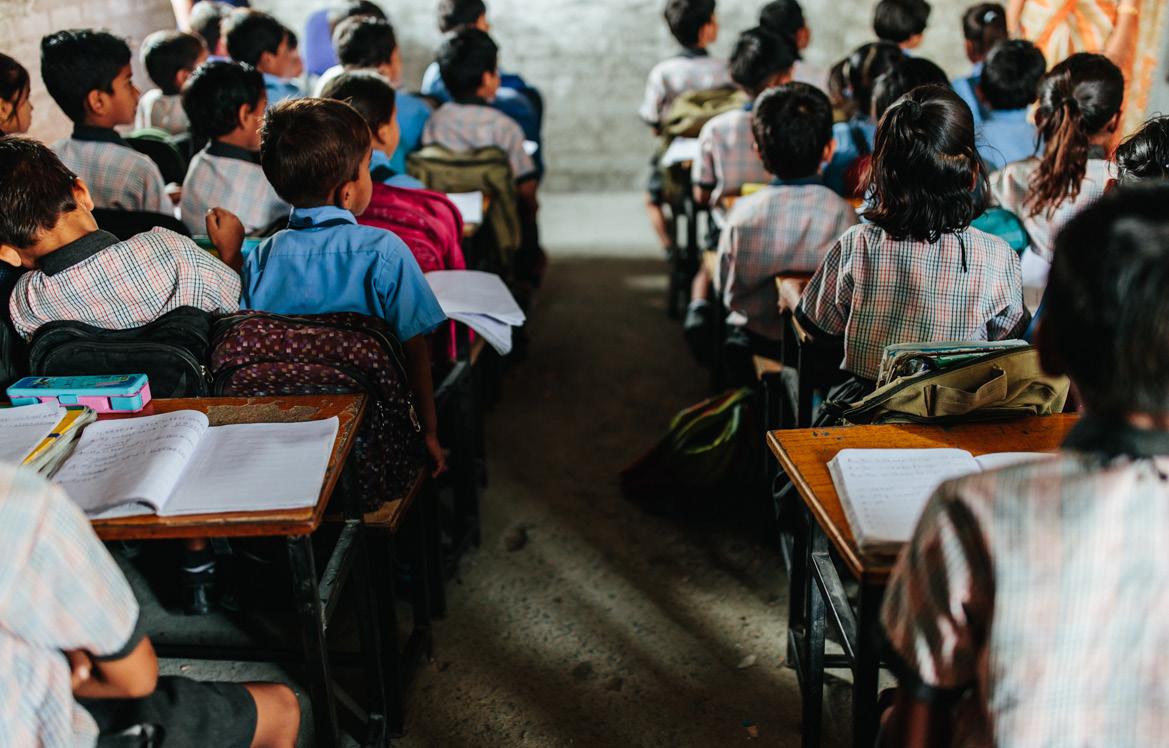
82,500 people benefiting from Women’s Safety programs in IndiaSafe Village training participants in Phase One. Up to 150 schools in India will benefit from the new EduQuality program.
The Health Leader program in Bangladesh is providing life-saving health education to women and their families in rural parts of the country where access to healthcare is limited. Many women are benefiting from receiving basic knowledge about sanitation, women’s health, menstruation, pregnancy and childbirth. Here are some of the stories of the women in Bangladesh whose lives are being transformed thanks to participation in the Health Leader program.
Ansara
Ansara is a young married mother who left school early but craved learning. When she became pregnant, Ansara wanted to learn about how to take care of herself during pregnancy and the birth, as she had seen many of her friends suffer complications and one of her friends had sadly passed away in childbirth.
Ansara began seeing a Health Leader named Bithy, who taught her about the importance of nutrition and sleep during her pregnancy, and helped her find a hospital to give birth in. Her husband’s parents were against Ansara seeing a doctor and getting care whilst pregnant as many elders had the false suspicion that every birth attended by a doctor would be a caesarean section. Ansara, with the support of Bithy, managed to convince her husband and in-laws that she needed a birth plan and support. Her husband took her to appointments, and they chose a hospital that had a doctor on call.
Ansara gave birth to a healthy baby girl in February, and is exclusively breastfeeding and looking after her baby well. She went against the advice of elders who in the past have given sugar water and honey to infants.
“I was a shy girl who used to know little about married life, reproductive health, pregnancy and newborn care, but basic health education training has taught me a lot and now I have confidence regarding health issues,” said Ansara.
“I also inform my family and extended family members about different health topics I learned from the trainings. This information is helping us to clarify a lot of misconceptions. The village is benefiting a lot as they are getting necessary health information and transforming their lives with it.”
Bilkij is a 17-year-old girl who had not been educated about puberty, menstruation and her changing body. When she got her first period she was scared and didn’t tell anyone. Each month she would stay home from school as she didn’t know how to deal with it. She began to fall behind academically and struggled to keep up with her classmates as she missed so many days of school. Fortunately, she met local Health Leader Fahmida who visited her home and started educating Bilkij about puberty. Fahmida made weekly visits and used flash cards and books to tell her about how to manage her menstrual cycle. She gave her sanitary pads to use and Bilkij now keeps some spare in her bag in case she gets her period.
Bilkij is now armed and ready with this basic health knowledge and doesn’t have to feel ashamed or embarrassed about the changes she is going through, and can attend school without fear.
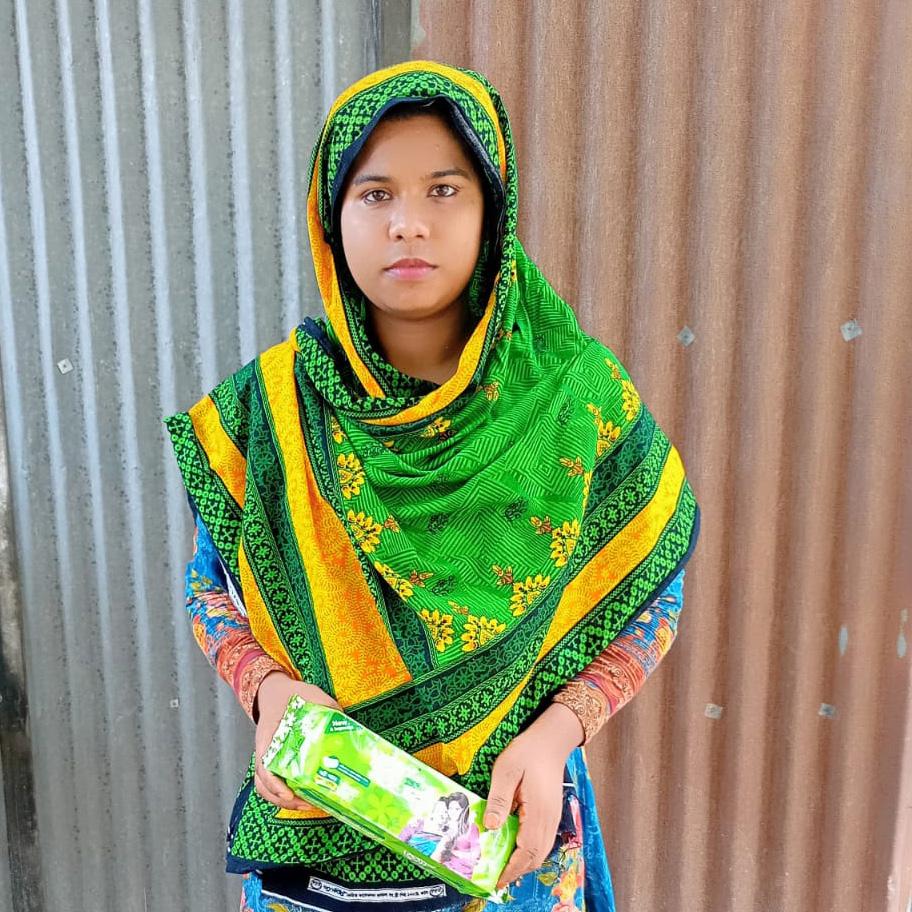
Bilkij received education from her Health Leader about puberty and menstruation.
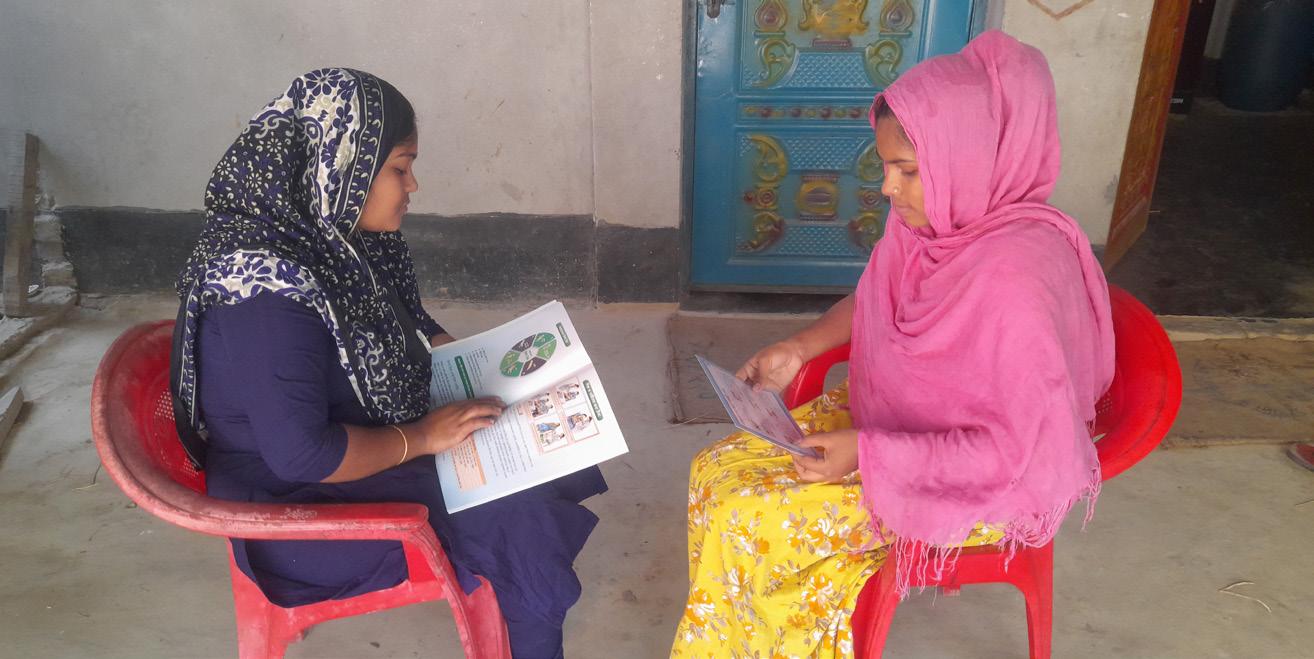
Mariam is a young mother who struggled with her health in her first pregnancy and childbirth due to lack of knowledge about basic healthcare during that time of her life. She suffered from anaemia and malnutrition, she had no access to a mid-wife or doctor during the birth and her baby had a low birth weight and was unwell. She didn’t seek medical advice as she believed the many superstitions about doctors she had been told.
Mariam was fearful of having another baby, but after seven years, a local Health Leader called Hamida began basic education about pregnancy and childbirth in her community. Mariam learnt how to take care of herself during pregnancy, with good nutrition and rest, and was told that having regular antenatal check-ups with nurses and doctors was the best way to prevent complications.
With this knowledge, Mariam became more confident, and she is now pregnant with her second child. She has received a birth safety kit, has regular check-ups and has booked the hospital for the impending birth.
Sultana is a small business owner, who had taken out a small loan with local microfinance institution BURO in Bangladesh. BURO approached Sultana and asked her to be part of the Health Leader program, and she happily said yes.
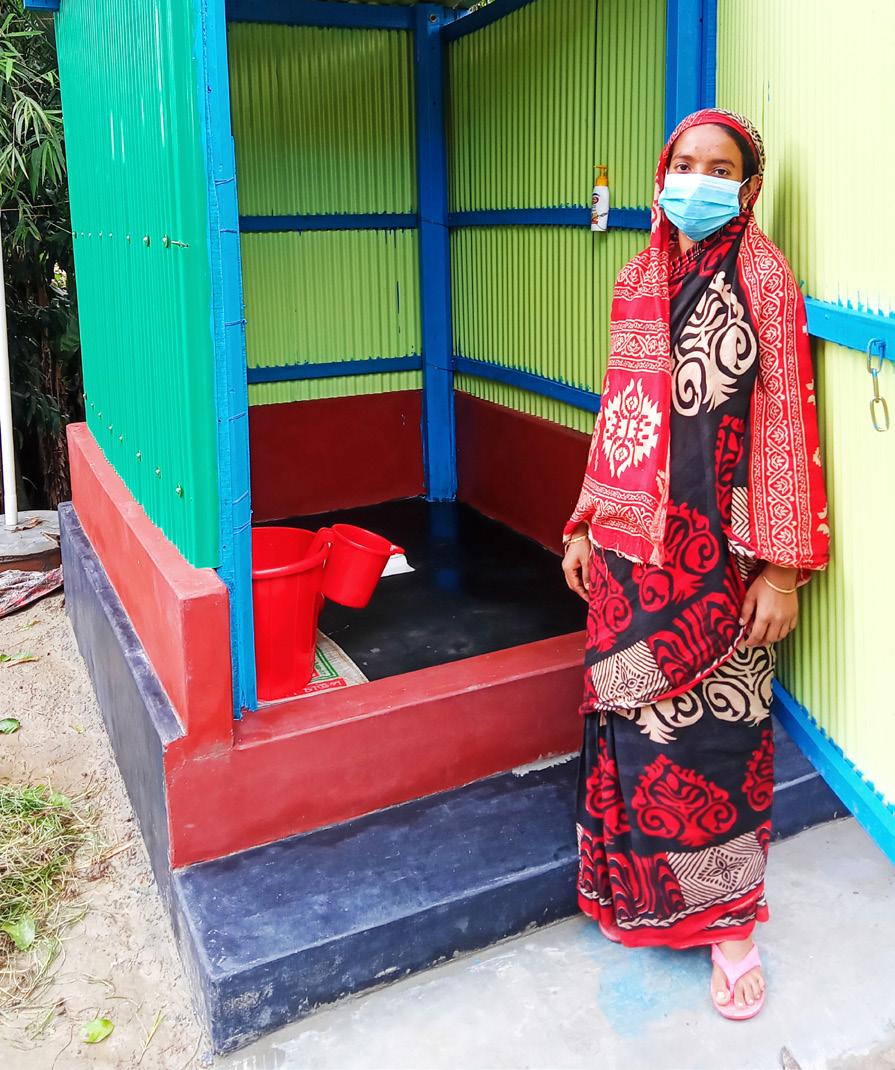
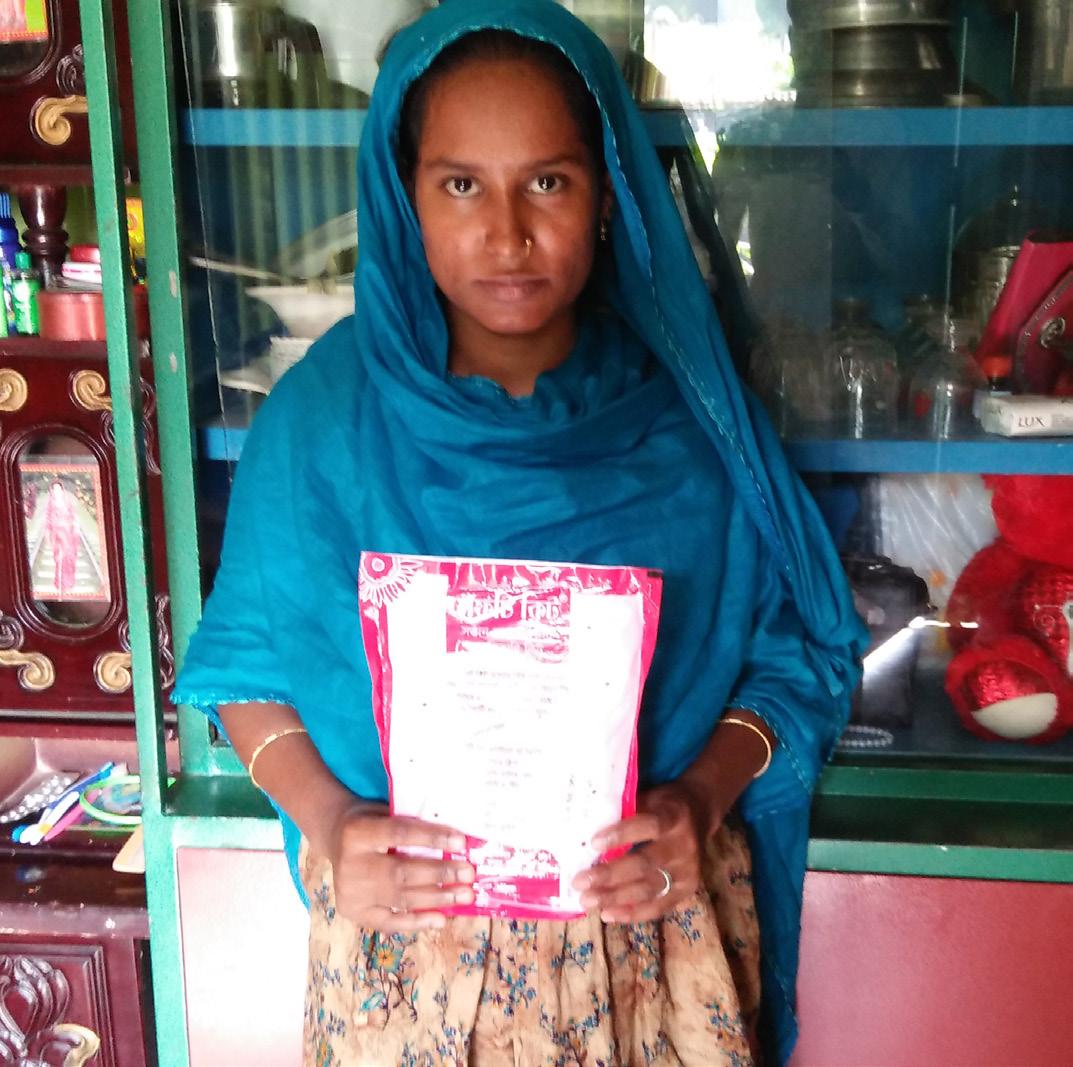
As part of her training to become a Health Leader, Sultana learnt for herself a lot of basic sanitation, hygiene, and healthcare information. She realised that in her own family a lot of improvements were needed.
In her family home, they did not have a toilet, so they were using holes dug in the side of the pond next to the house, fenced with old cloth. They did not have the facilities for decent handwashing either. During monsoon season the pond would be flooded and sewage would be spread across the whole area. The family would often get sick with diarrhoea and didn’t have the knowledge to connect it to the unhygienic toilets.
Sultana and her husband used some of their savings to build a new hygienic toilet block in their backyard. They now have the facility to wash their hands and they aren’t getting sick anymore.
Sultana has been able to teach others the same lessons about hygiene and sanitation and has gained respect and acceptance as a leader in her community.
“If someone had given me advice like this before, I probably wouldn’t have had to suffer so much with my first child,” said Mariam.Above: Mariam holding her birth safety kit she received from her local Health Leader. Above: Sultana and her newly-built toilet in her backyard.
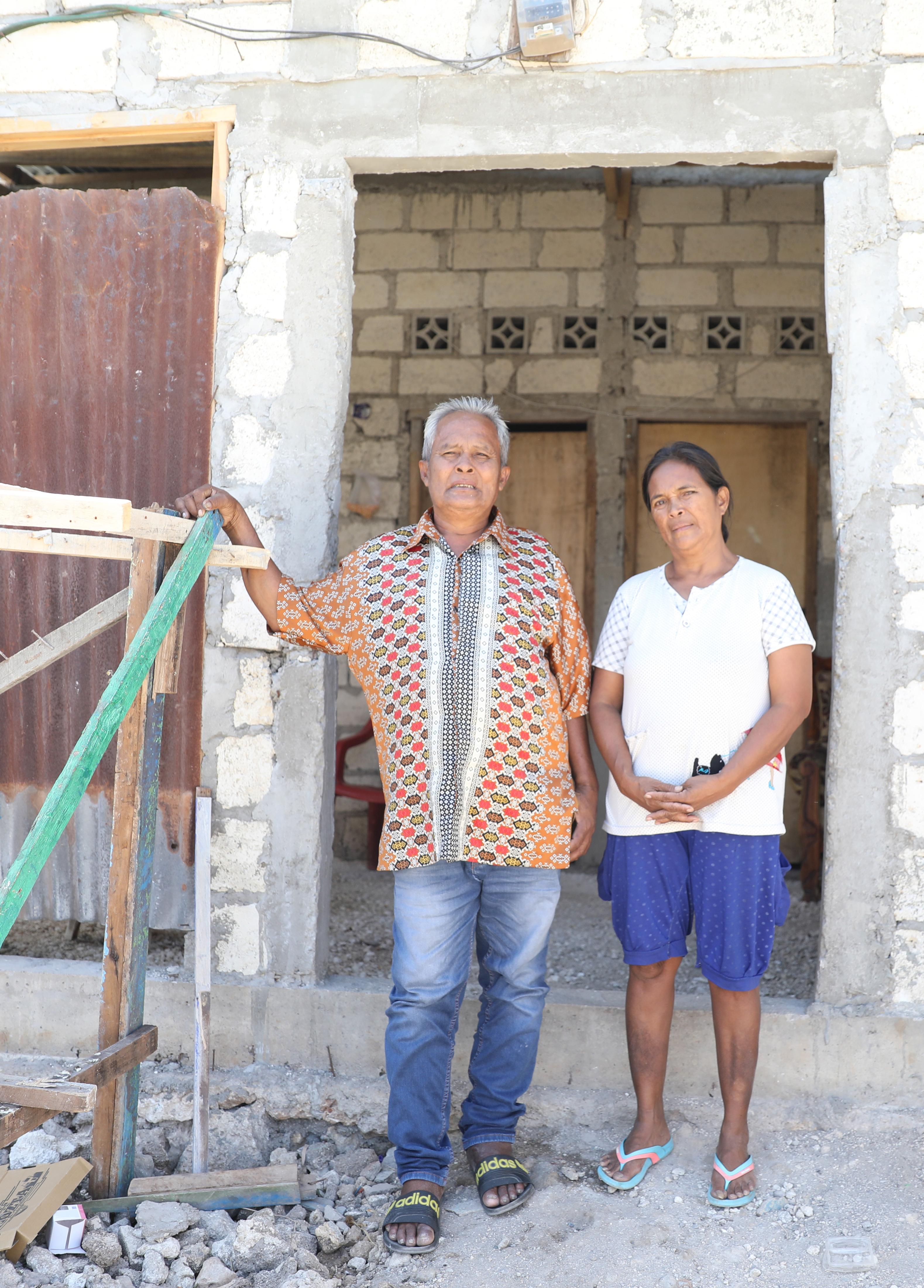
“During the cyclone time, it was really hard for us.”
APLONIA
Aplonia, aged in her late 50s, lives in Kupang, Indonesia. She is married to Stefanus and they have six children. Life is difficult for most people in Kupang, but for Aplonia and her family, it has been particularly tough.
Stefanus had a stroke a few years ago, and although he did recover, he is unable to work. The long-lasting effects of the stroke on his health are difficult to manage, so Aplonia became the sole breadwinner in the family.
She took out a loan with one of Opportunity International Australia’s local partners and set up a vegetable stall at the local market.
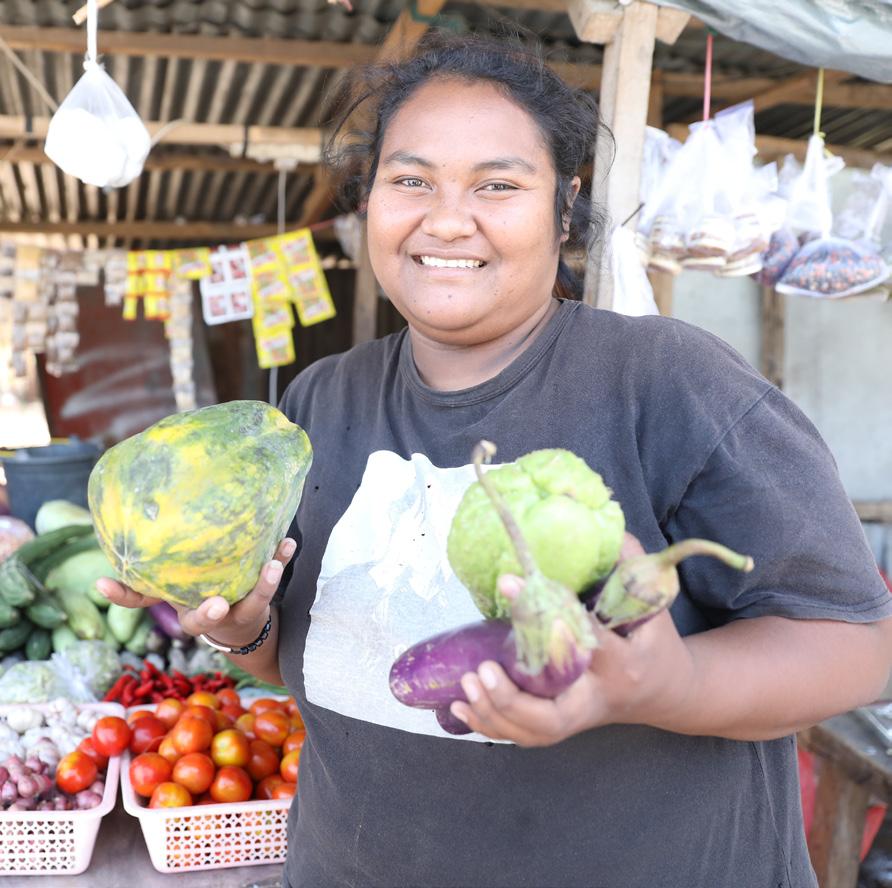
“It hurts for my husband to walk,” said Aplonia. “He doesn’t have a job. So, I’m doing my business all day long, paying the school fees, and using the money as my business capital.”
Every day Aplonia rises early and heads to the market to purchase fruit and vegetables to then sell at her own stall. One of her daughters, Yuni, also has a stall at the market and received a small loan to start her own business.
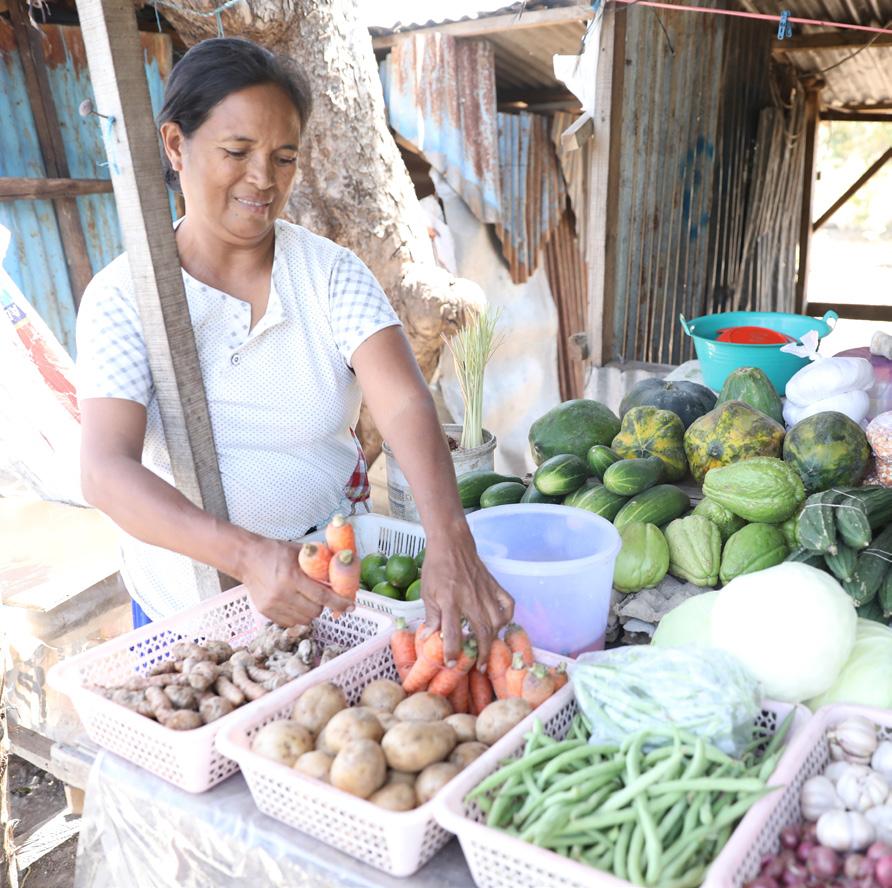
In April 2021, disaster struck. Cyclone Seroja ripped through their village, damaging most of their house. The roof and the walls were destroyed. On the night of the cyclone, the family fled to her son’s house nearby to take shelter. Their son’s house was also damaged that night, but it wasn’t until the next morning they saw the extent of the damage at both homes.
The family had to rebuild their house, whilst also taking care of Stefanus’ medical needs. The house is still being rebuilt two years on.
“During the cyclone time, it was really hard for us,” said Aplonia.
Throughout their troubles, Aplonia has managed to keep her vegetable stall going and is able to support the family.
She still has two children in school, and the income she earns from the vegetable stall helps pay the school fees. One of her sons dreams of becoming a policeman, and has recently started training in security as a starting point.
Aplonia has aspirations for her children to succeed in life but ultimately has one dream.
“I want my children to have a happy life,” said Aplonia.
Opposite: Stefanus and Aplonia outside their home that was damaged in a cyclone and is now being rebuilt. Below left: Aplonia at her vegetable stall. Below right: Yuni, Aplonia’s daughter, also runs a vegetable stall, with the help of a small loan.
For many families living in poverty, small loans through Opportunity International Australia’s partners are the start of their journey in finding financial independence.
Manti, a mother of six girls, is one of the millions of women Opportunity supports with a small loan. Manti and her family live in Bihar, the third most populous state in India, where more than a third of the population live below the poverty line.
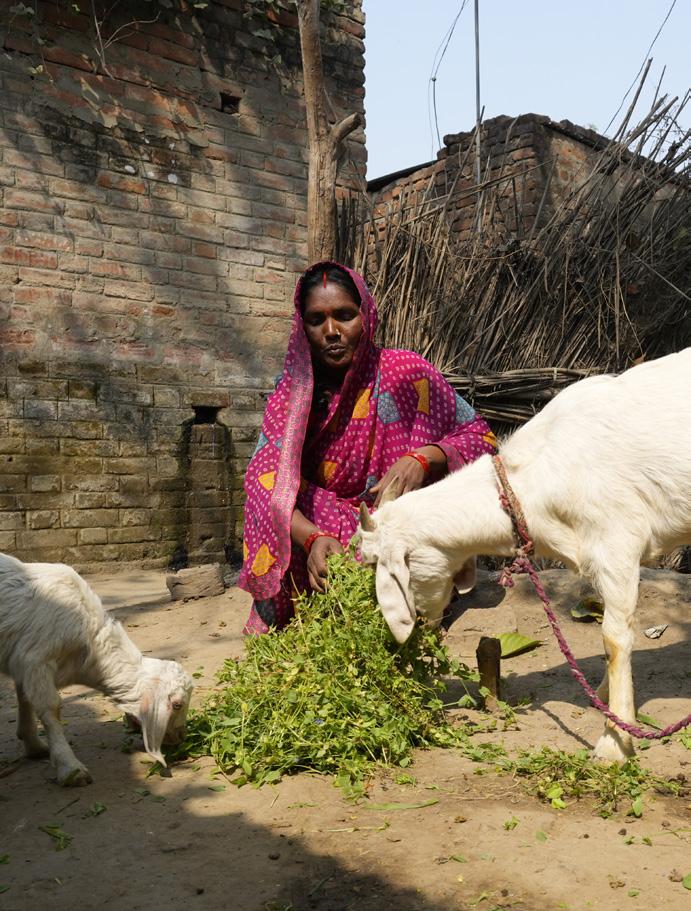
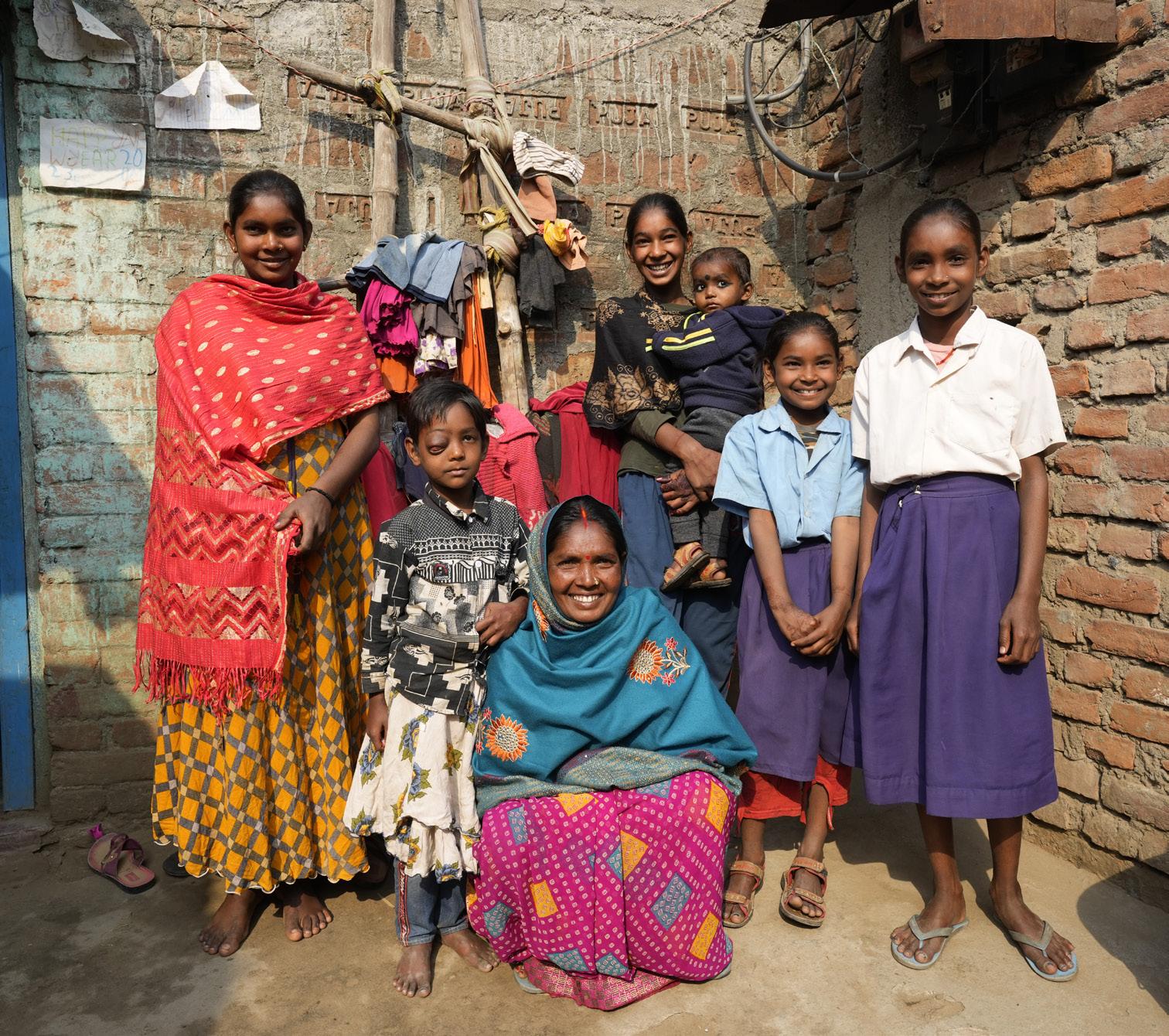
According to UNICEF, children in Bihar face many challenges owing to widespread poverty, deeprooted socio-cultural and gender inequalities, caste divisions, poor infrastructure, lack of basic services and recurring natural disasters.
Manti’s family struggle to make ends meet. Her husband is a labourer, but his earnings aren’t enough to cover their expenses.
There is often only enough money for one meal a day for the family of eight. Some nights, Manti is forced to send her children to bed with only a cup of water to fill their empty stomachs.
Their home is small with an outdoor kitchen and water pump. They don’t have a bathroom and the girls use a nearby field as a toilet, which can be dangerous at night.
One of their daughters, six-year-old Mohan, was born with a tumour on her eye. Manti worries about her future as they simply cannot afford medical treatment or surgery to help her.
But Manti and her family are slowly turning things around. With a small loan from one of Opportunity’s microfinance partners in India, Manti was able to start a farming business, growing vegetables and selling goat’s milk. She hopes to expand her business in the future and help give her children a better future.
“I want to give my children a better life,” said Manti. “I don’t want them to live the life and face the problems I did.”
While Manti is at the start of her journey out of poverty, her neighbour Rani is a bit further down the track.
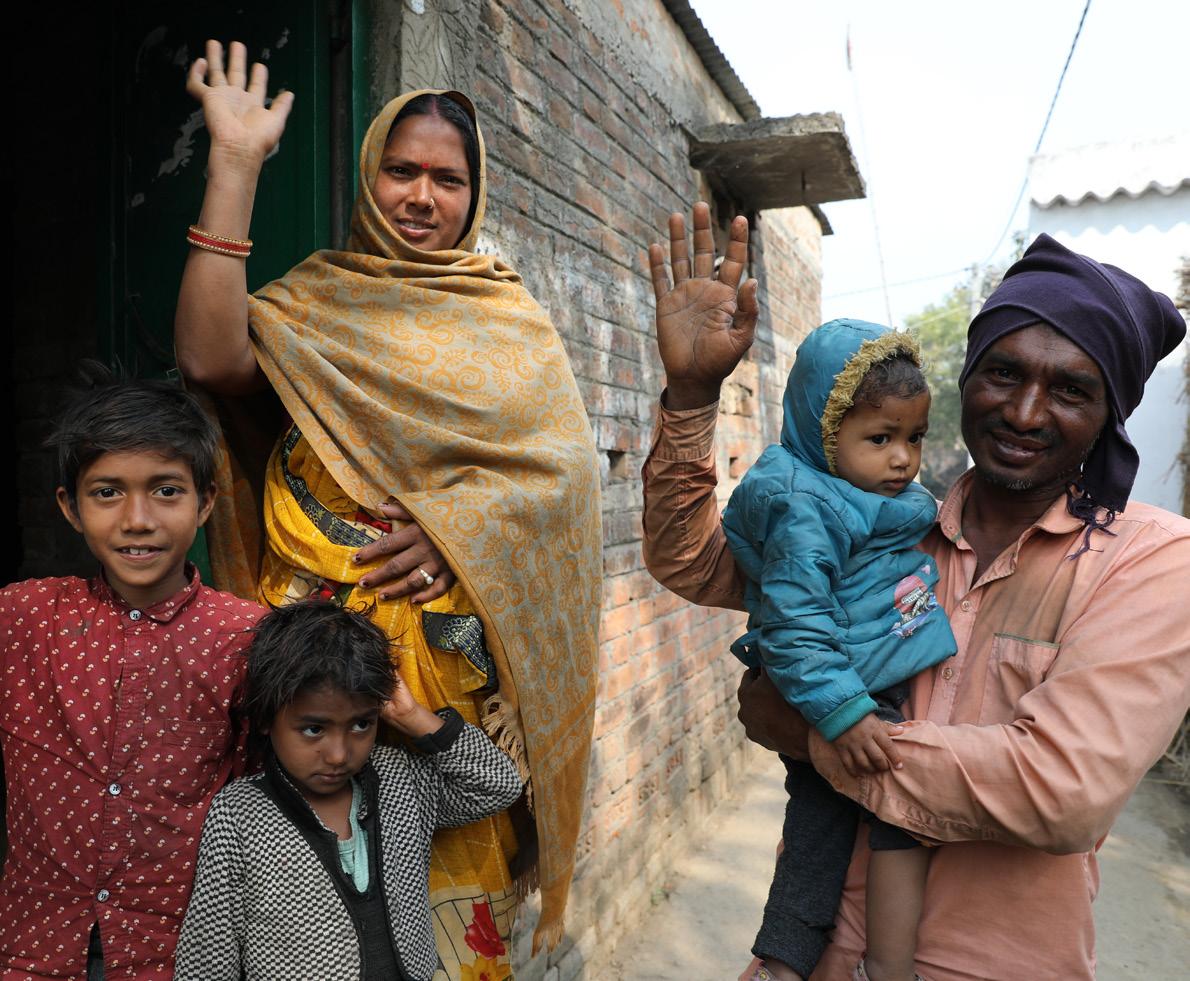
Prior to receiving a small loan from Opportunity’s local partner, Rani found life very tough. As a couple, Rani and her husband simply didn’t earn enough money to keep their kids in school and the children had to drop out, risking the chance for an education and opportunities for the future.
The answer for Rani and her family came in the form of a loan to buy a buffalo. As well as being able to sell the milk for additional income, Rani could also provide the nutritious milk to her children and family.

Buoyed by her success, with her second loan, Rani and her husband established a basic shop where they could buy items in bulk and sell them locally. Things began to improve drastically with this newly diversified income.
Today, several loans later, she is a successful businesswoman in her village, with newfound confidence, transforming life for her and her family.
On the front steps of her modest brick home, Rani smiles proudly and holds up six fingers. This is the number of buffalos she now owns thanks to years of hard work and microfinance loans. This income has enabled her children to go back to school, improved health and nutrition for the whole family, and a brighter future ahead.
“We see ourselves as financially empowered now,” she says.
Ginger Mahoney is a 20-year-old university student and part-time paralegal at a criminal law firm. She is studying a double degree in Commerce and Law at Macquarie University and is passionate about women supporting women in business globally, which led to her becoming an Opportunity International Australia Ambassador.

“I was first introduced to Opportunity when I was 15 years old through my aunt who worked for a major corporate sponsor of Opportunity at the time,” said Ginger.
“I felt inspired by Opportunity’s mission to empower people, especially women living in poverty, to transform their lives, their children’s futures, and their communities by providing financial solutions and training.”
At the time, the Philippines was one of the countries Opportunity worked in, and Ginger felt a special connection, as her mother’s family is from the Philippines.
“I felt the need to help, so I approached my school principal with a PowerPoint presentation and one of Opportunity’s promotional videos requesting that my class organise fundraisers for Opportunity,” said Ginger.
“During the remainder of my high school days, I raised money for Opportunity through sausage sizzles, bake sales and mufti day fundraisers.”
“Supporting Opportunity International is incredibly important to me as I grew up with a single mother who was an entrepreneur and owned multiple small businesses,” added Ginger.
“She showed me the importance of women having their own career and success to be able to support themselves and their families. That is why Opportunity resonates with me as it enables me to support women in developing countries to start their own business and work their way out of poverty.
“Female empowerment is something that I am incredibly passionate about and has led me to supporting Opportunity for the last five years.”
At university, Ginger is a member of the Women Entering Business society, and in 2023 she was elected President. The society has 30 executive team members, and over 1,500 members.
“A goal that I set for my 2023 presidency was to advocate and fundraise for Opportunity through my society,” said Ginger.
“No other society at Macquarie University is currently affiliated with a non-profit organisation, and I believed that Opportunity’s mission aligned perfectly with Women Entering Business’ mission. It is great to give back to the community through our society and have a philanthropic aspect.”

In March 2023, Ginger was part of the organising committee for Trivia for Transformation, a wonderful fundraising event held at Macquarie Bank, which raised over $200,000 for Opportunity.
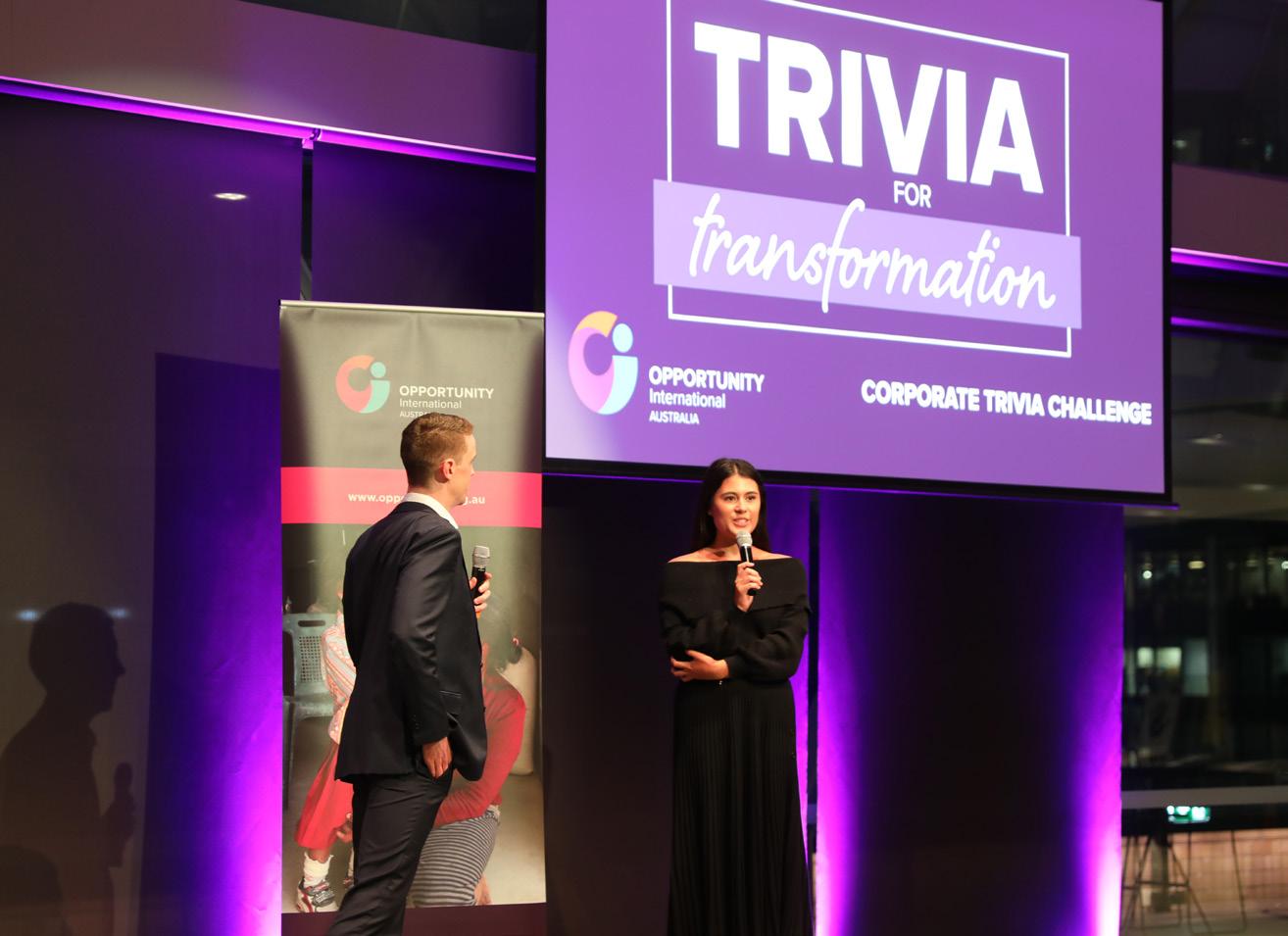
Ginger also organised a fundraising event at Macquarie University in May through the Women Entering Business society, which was a fundraising, personal branding and LinkedIn workshop with Carlii Lyon. Ginger is on the forefront of spreading the name of Opportunity and gaining support from a whole new generation of people.
If you would like to become an Opportunity Ambassador like Ginger, visit https://opportunity. org.au/join-a-community/becomean-ambassador
“
Female empowerment is something that I am incredibly passionate about and has led me to supporting Opportunity for the last five years. ”
GINGER MAHONEYRight: Ginger Mahoney (far right) organised a personal brand workshop with Carlii Lyon (far left) to raise money for Opportunity at Macquarie University.
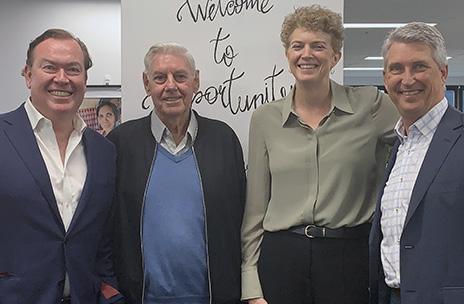
Opportunity International Australia’s CEO, Scott Walters, has welcomed the appointment of a new Chair, Walter Lewin, who has extensive experience in investments, funds management, finance and company directorships in Australia and internationally.
Mr Lewin is Chair of OneVentures, a leading Australian venture and growth capital firm focusing on technology and healthcare investments. Previously he was Managing Director of Merrill Lynch based in London and held senior roles at SBC Warburg (now UBS).
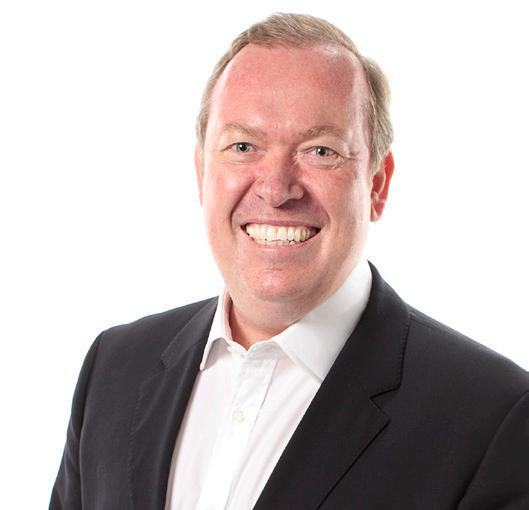
Mr Lewin takes over as Chair from Joanna White who has retired after serving as Chair since 2018.
“It’s a privilege and exciting to be able to work with the Opportunity team, and with our incredible local program partners, to assist women and families in Asia on their journey out of poverty,” Mr Lewin said.
He is passionate about poverty alleviation, and has visited clients and local microfinance partners in India since joining the Opportunity Board.
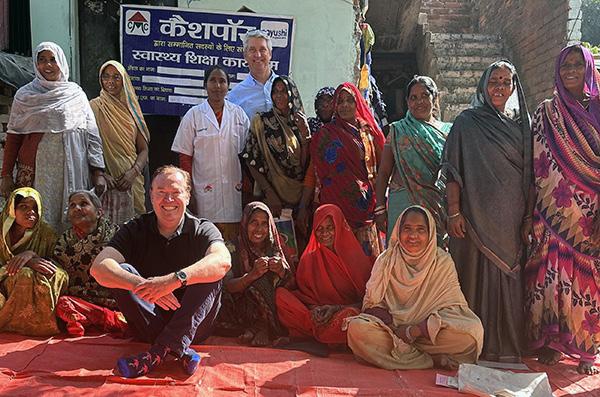
“The women we serve are amazing people, who want the best for their families and children, just like all of us,” Mr Lewin said. “It is an honour to be able to meet and speak with them at their homes and businesses about their life journeys and their aspirations for themselves and their children.
“It’s striking how incredibly dignified, resourceful and hardworking they are, even when they experience hardships. Our clients are determined to get themselves and their children out of poverty, and they know what they need. What we need to do is provide them with the support and opportunities to get there.
“It is a powerful and humbling experience seeing the impact that Opportunity has on these families and seeing their lives change.”
Mr Lewin is looking forward to increasing the reach of Opportunity’s work in Asia, particularly through impact investment funds and harnessing investment capital to provide even greater reach and impact.
“The power of the Opportunity microfinance model is that the loans provided have historically had very low rates of default,” added Mr Lewin. “That means the support Opportunity provides continues to do good work over time, because new loans can be made with the repaid funds. It is a powerful cycle of being able to effectively continue to reach even more families.”
“We are delighted that Walter Lewin is taking up the leadership of Opportunity International Australia,” said Scott Walters. “He brings a wealth of experience to his role and believes deeply in microfinance as an effective poverty alleviation tool, especially in countries like India and Indonesia.”
It’s thanks to your support that we have been able to increase our investment in programs that create new opportunities for resilient and hard-working women and families across Asia.
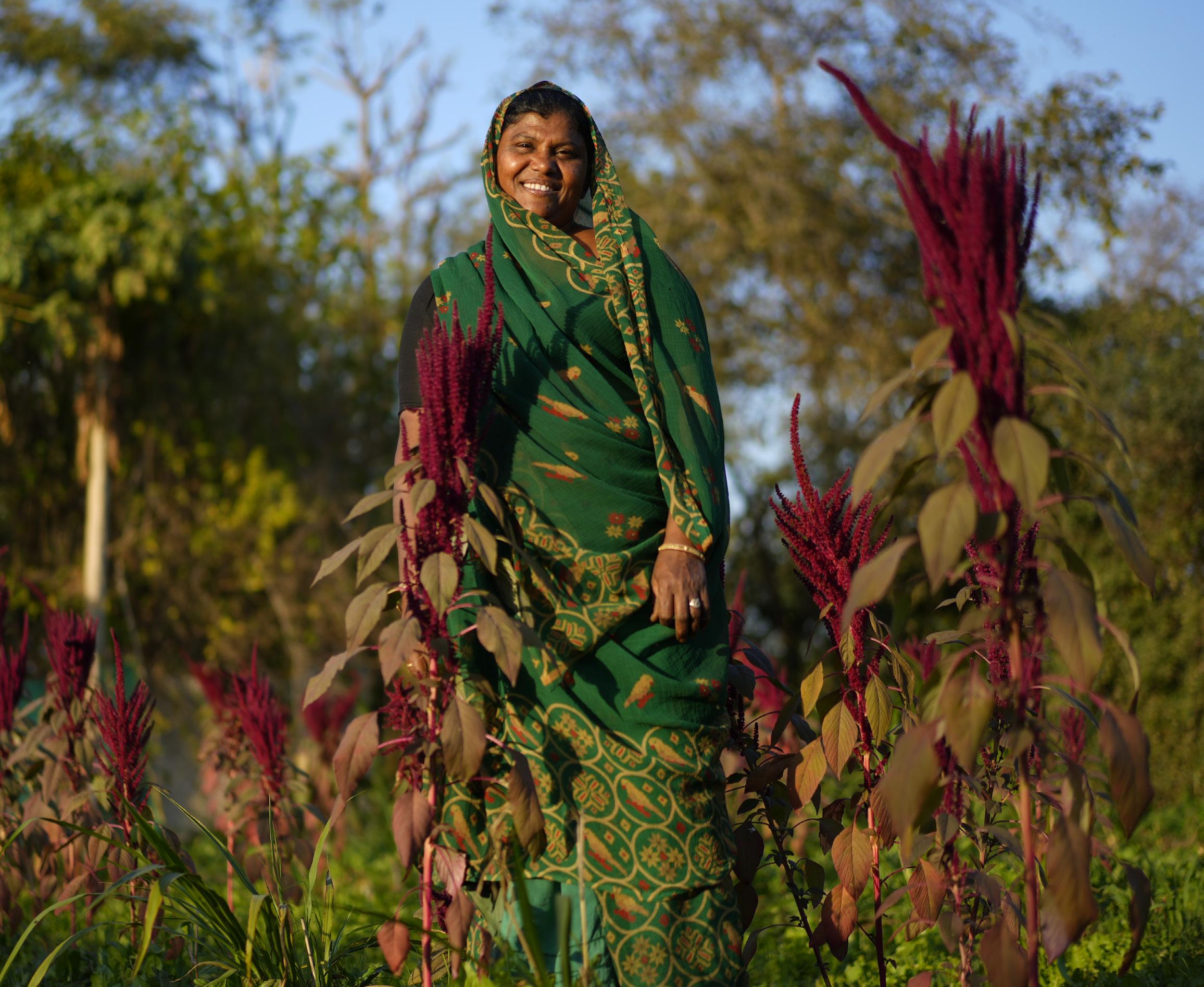
Thanks to you, we have been able to protect and build more businesses, help more children return to school, reach more women and girls with anti-violence and human trafficking awareness and protection, and to extend our health program by training more Health Leaders.
Opportunity International Australia is an Australian Council for International Development (ACFID) Member and is committed to full adherence to the ACFID Code of Conduct.

Opportunity International Australia receives support from the Australian Government through the Australian NGO Cooperation Program (ANCP).
Opportunity International Australia is a member of the Australian Disability and Development Consortium (ADDC). The ADDC is a network of agencies, organisations and individuals with an interest in disability-inclusive development within Australia and internationally.
With deepest gratitude, and sincerest thanks from the Opportunity International Australia team. On behalf of those we serve.
“I really believe that Opportunity International Australia does change lives. Events like Trivia for Transformation, all the corporate events and all the individual donors who give on a regular basis are giving to a great cause that really does alleviate poverty and help provide for communities in developing nations.”
Opportunity International Australia Limited
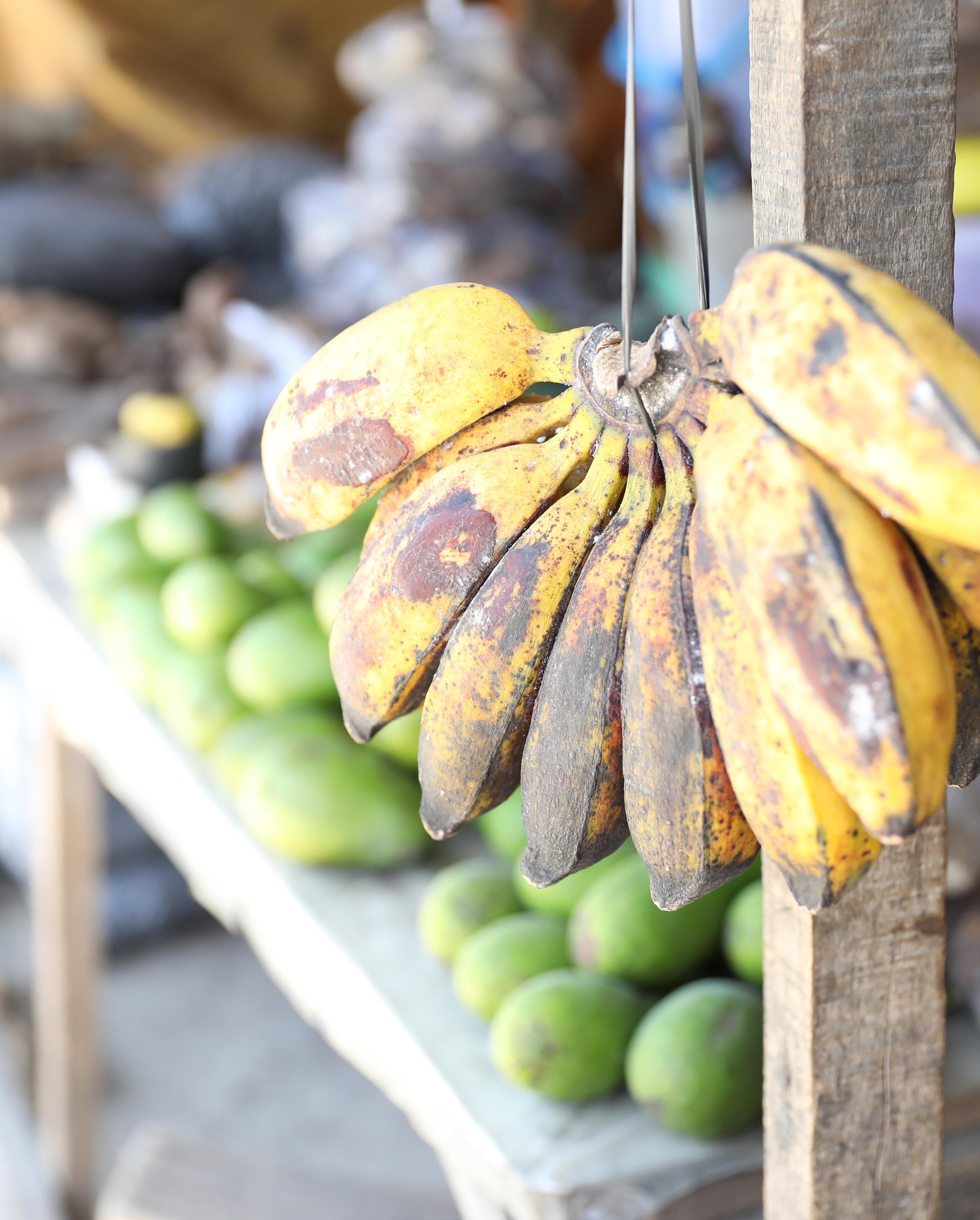
ABN 83 003 805 043
PO Box A524 Sydney South NSW 1235 Australia
T: 1800 812 164
E: opinfo@opportunity.org.au opportunity.org.au
facebook.com/OpportunityAUS
instagram.com/OpportunityAUS
twitter.com/OpportunityAUS
linkedin.com/company/OpportunityAUS
Simon Metcalfe, Opportunity International Australia Ambassador